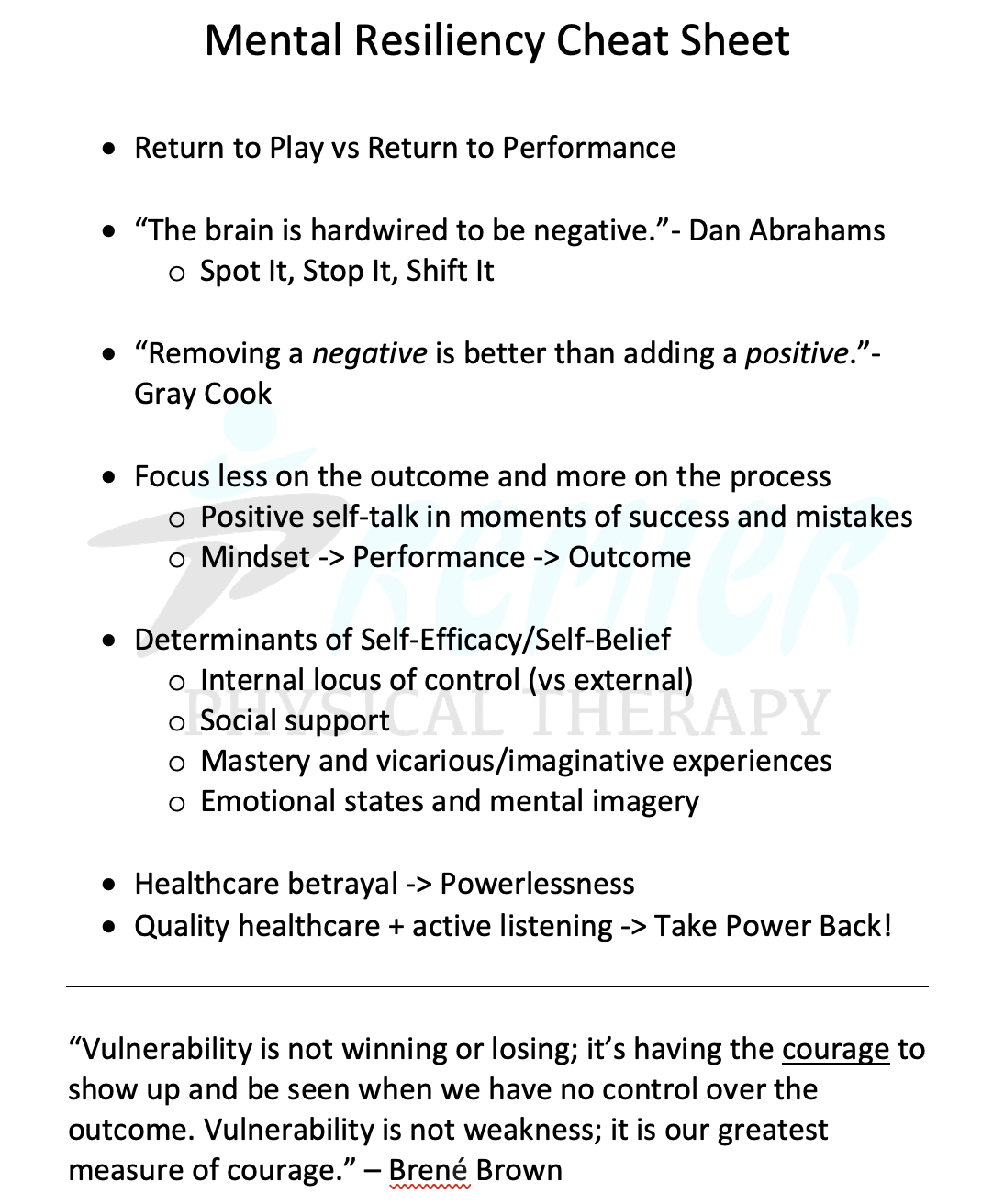Post-Operative Rehabilitation: Start With Your Brain!
Treating your brain after an orthopedic surgery seems a bit counterintuitive. However, it has been fundamentally correlated to positive outcomes. Let me explain.
When I had my right knee surgery on August 12th, I had the typical post-op issues to contend with, including pain, swelling, mental fog (from all the medications and anesthesia), and sleep issues. Part of the immediate goal was to move as much as the surgeon allowed, to help reduce the risk of blood clots and excessive scar tissue development. This also enables us to get started on the pain, swelling management, and sleep issues before we can advance further through physical therapy goals such as range of motion, strength, and balance.
But what has been shown time and time again with very high-quality studies is the power of positivity psychology to help you accomplish your post-op goals.
What does this mean? Well, it certainly does NOT mean blind optimism; the sense that everything is perfect all the time. It means that if we can enhance our psychological ability to build resilience, strength, and well-being, then we can speed up the healing process. The body and mind are in constant communication. The stress, anxiety, and fear that understandably come from surgery can trigger a cascade of negative physiological responses that slow down healing.
However, we can accelerate healing by building optimism and gratitude to ultimately boost immune function, reduce pain, and reduce the risk of post-operative complications! Who knew?!
People who expect good outcomes are more likely to be an active participant in their recovery, including attending physical therapy, following through on their home exercise program, and ultimately returning to their daily activities more quickly. Patients do better when they can shift their mindset from what’s wrong to what’s going right. For example, “Yes my knee is uncomfortable right now, but it’s less painful than it was yesterday. I’ve been working hard and doing my exercises, so I’m less stressed as a result.”
Pro tip: be nice to yourself! The rehabilitation journey is filled with bumps in the road, and when you inevitably encounter one of these, self-compassion and being mindful are your way forward. So yes, of course you need to complete your exercises, walk, and stay as active as you can. Yes, days off here and there can be helpful. But your ceiling is only so high if you don’t build your mental resiliency. It’s why I’ve got the mental resiliency cheat sheet in my office.
Each of us are in control of exactly two things: your work ethic and your attitude. Hard work only gets you so far. As we travel through the second half of 2025, be mindful of your attitude. Positive > negativity!

